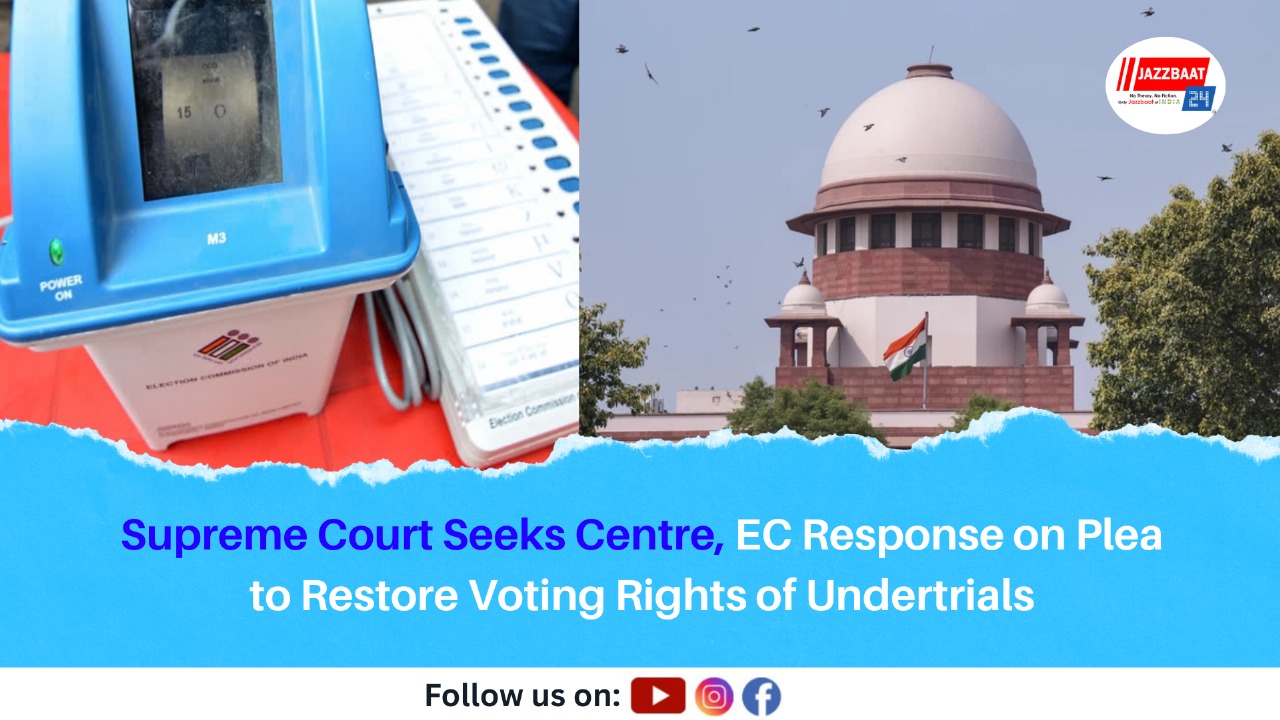New Delhi: The Supreme Court on Friday issued notices to the Central Government and the Election Commission of India (ECI) on a Public Interest Litigation seeking restoration of voting rights for nearly 4.5 lakh undertrial prisoners lodged in jails across the country.
A bench comprising Chief Justice B R Gavai and Justice K Vinod Chandran sought responses from both authorities after hearing submissions from advocate Prashant Bhushan, who appeared for the petitioner.
The petition, filed by Sunita Sharma, a resident of Patiala in Punjab, challenges the validity of Section 62(5) of the Representation of the People Act, 1951, which disqualifies prisoners from voting during their incarceration. The petitioner argued that the provision imposes a blanket ban that violates fundamental rights and is inconsistent with democratic principles recognised under the Constitution and international conventions.
Bhushan contended that undertrial prisoners, who have not been convicted of any offence, cannot be deprived of their constitutional right to vote. “The right to vote is an essential element of democracy. Denying this right to citizens who are merely awaiting trial offends the principle of presumption of innocence,” he submitted.
The plea urged the Court to direct the Election Commission to devise a mechanism allowing eligible undertrials to cast their votes, either through postal ballots or special polling booths within prison premises. It further sought a declaration that Section 62(5), in its present form, is unconstitutional insofar as it applies to undertrial detainees.
Section 62(5) currently restricts the right to vote for anyone confined in prison, irrespective of whether the individual is a convicted prisoner or an undertrial. Legal experts have long debated the fairness of this restriction, pointing out that it conflates those awaiting trial with those serving sentences.
The Supreme Court’s notice signals a willingness to re-examine the issue, which has remained unaddressed for decades despite calls from civil rights groups to distinguish between convicts and undertrials in electoral participation.
The bench has directed the Union Ministry of Law and Justice and the Election Commission to file their responses before the next hearing.
If the Court eventually finds merit in the petition, the move could pave the way for significant electoral reforms, expanding the democratic franchise to thousands of citizens currently awaiting trial in prisons across India.
